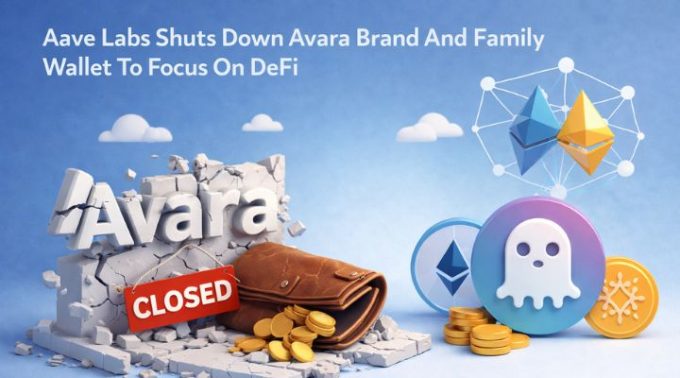How Timelock Contracts Can Protect Your Funds and Data?
By Kapil Rajyaguru
The two most important properties of blockchain technology are security and immutability. Smart contracts have become one of the most crucial tools for ensuring the usage of blockchain technology across a range of use cases.
The idea of a timelock smart contract has recently become well-known in the cryptocurrency and Web3 industries.
One of the most notable instances of blockchain security connected to smart contracts is the timing of certain transactions. Contracts for auctions, for instance, can require that offers be filed within a certain window of time.
Additionally, an ICO may limit customers’ long-term ability to transfer freshly acquired tokens. Both situations provide an illustration of a timelock contract, which limits some smart contract capabilities for a predetermined amount of time. This essay covers the basics of timelock contracts as well as smart contract security in great depth.
What Are Timelock Contracts?
Smart contracts that place a delay or time-based limitation on the execution of specific actions or transactions are known as timelock smart contracts, also known as time-based or delayed contracts. Timelock contracts impose a waiting period before a given activity may be carried out, in contrast to conventional smart contracts that execute instantaneously.
Timelock contracts often have a predefined time delay that prevents users from doing the required activity. This waiting interval is an essential safeguard that promotes openness, safety, and defense against malevolent behavior or rash decisions.
Complexity Of Timelock Contracts
The additional code required to change the functionality of contracts was represented by the function modifiers. For timelock smart contracts, the ‘if…then’ option can be used as the default. As an alternative, timelock contracts can make use of increasingly sophisticated sorts of function modifications. The administration of smart contracts using timelock contracts may be understood through their use cases.
Function call queuing and delayed execution are made possible by timelocks, which are used to manage smart contracts. The asynchronous execution of administrative functions for smart contracts can be made easier by timelocks with scheduling-and-execute capability.
The timelock contract can be contacted by proposers to take over planning for maintenance activities. The target contract’s address must also be given by the proposers as a function parameter along with other necessary data. On the other side, executors are in charge of triggering timelock contracts to get in touch with target smart contracts once the delay period has passed. Such timelock variations ensure that the proposer’s and executor’s duties may be shared among several people, fostering efficiency and decentralization. Furthermore, by restricting function calls, timelocks work to postpone the execution of functions.
Another type of timelock contract stresses the role of timelocks as one or more smart contracts’ administrators. Smart contracts that are under the administrator’s control a protocol’s functioning. This particular style of timelock smart contract has the exclusive power to activate administrative features, such as altering transaction fee specifications or creating tokens. Timelock smart contracts are becoming increasingly popular in the crypto and Web3 sectors owing to their security advantages.
Applications Of Timelock Smart Contracts
- Token Distribution And Token Vesting: Timelock contracts are frequently used for token distribution and vesting. Project teams can lock up a specified number of tokens via a timelock mechanism, prohibiting access to or transfer of those tokens for a predetermined amount of time. To guarantee equitable distribution and avoid token dumping, this strategy is frequently employed in initial coin offerings (ICOs), fundraising efforts, and team token allocations.
- Governance And Protocol Upgrades: Smart contracts with timelock functionality are essential to decentralized governance schemes. They provide token owners the ability to suggest and vote on protocol or parameter updates. A timelock delay allows stakeholders to study suggested modifications and offer their perspectives, lowering the likelihood of hurried or controversial choices.
- Security Enhancements: Timelock contracts add an extra degree of security by requiring a delay before performing crucial actions. Timelocks, for instance, can be used in decentralized finance (DeFi) systems to protect users’ cash by requiring a wait before important changes, such changing the protocol version or altering essential parameters, can take effect. Users will have time to respond or withdraw their money if they think the changes are adverse thanks to this delay.
Benefits Of Timelock Smart Contracts
- Protection Against Human Error: Timelock contracts use a grace period to reduce the danger of human mistake. This extra time enables users, auditors, and developers to find and fix possible problems or vulnerabilities before carrying out crucial tasks.
- Enhanced Security And Transparency: It minimizes the possibility of harmful behaviour by ensuring that modifications to protocols or token transfers are public and open to community review.
- Decentralized Decision-making: Timelock contracts support decentralized networks’ democratic decision-making procedures. A fair and inclusive governance system is provided by establishing a waiting time, giving all stakeholders an equal opportunity to analyze and evaluate proposed changes.
Challenges And Considerations
While timelock smart contracts have many advantages, there are certain difficulties and things to keep in mind as well:
- Flexibility Vs. Rigid Governance: It might be difficult to strike a balance between flexible and tight governance. Overly strict deadlines or protracted waiting times may impede innovation and the capacity to react quickly to market needs.
- Timelock Exploitation: During the waiting period, bad actors could occasionally try to exploit weaknesses. To reduce these concerns, smart contract developers must take care to ensure the reliability and security of timelock implementations.
- Trust In Developers: Timelock contracts rely on the knowledge and moral character of creators. Users must have faith that developers can produce timelock solutions that are safe and well inspected.
Conclusion
Blockchain networks can benefit from the mechanism provided by timelock smart contracts to improve security, governance, and decision-making. Timelocks provide stakeholders transparency, defense against human mistake, and the chance for democratic engagement by delaying crucial procedures.
However, developers must make sure that timelock solutions are secure and resilient, and a balance between flexibility and strict control must be carefully considered. Timelock smart contracts will definitely be crucial in determining the future of decentralized ecosystems as blockchain technology develops, laying the groundwork for trust, security, and decentralized decision-making.
You need to login in order to Like














